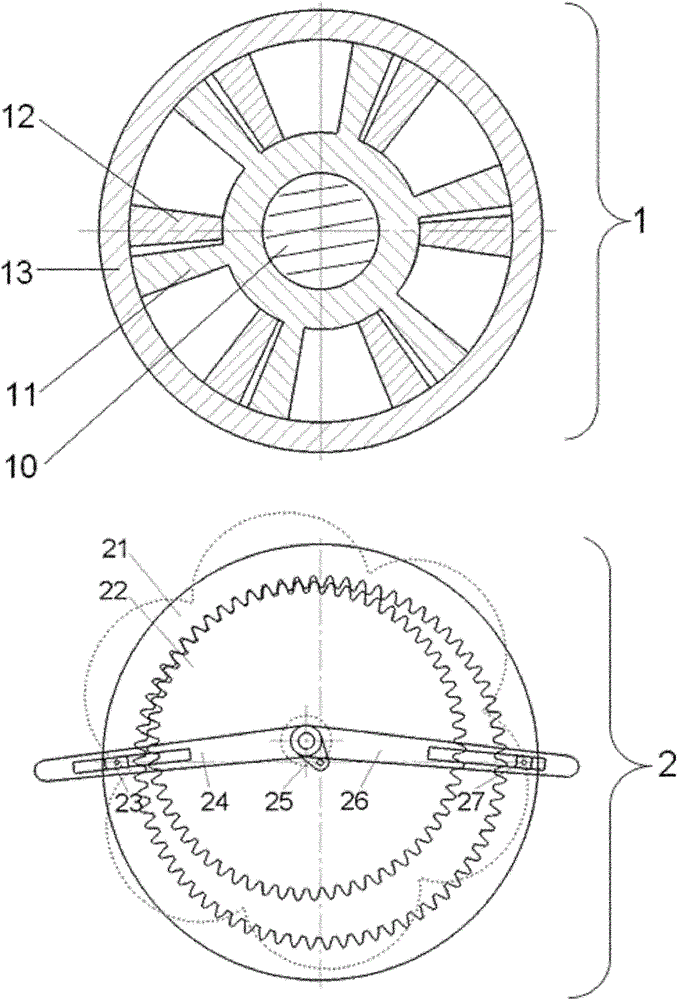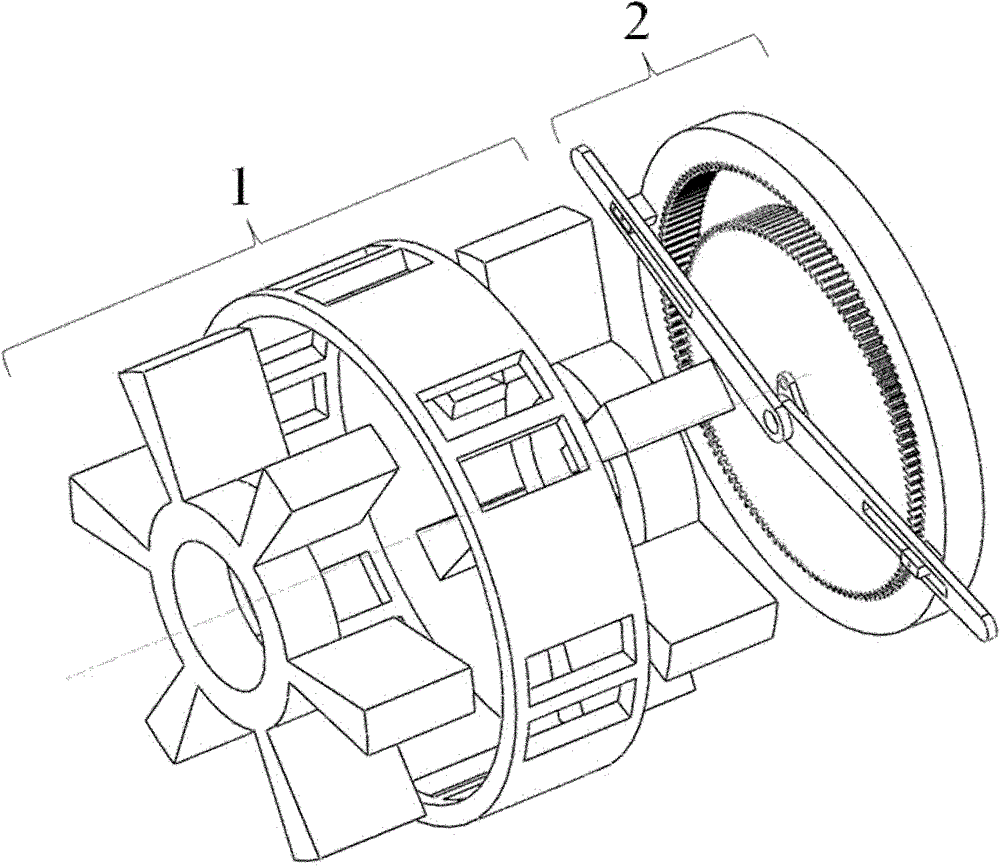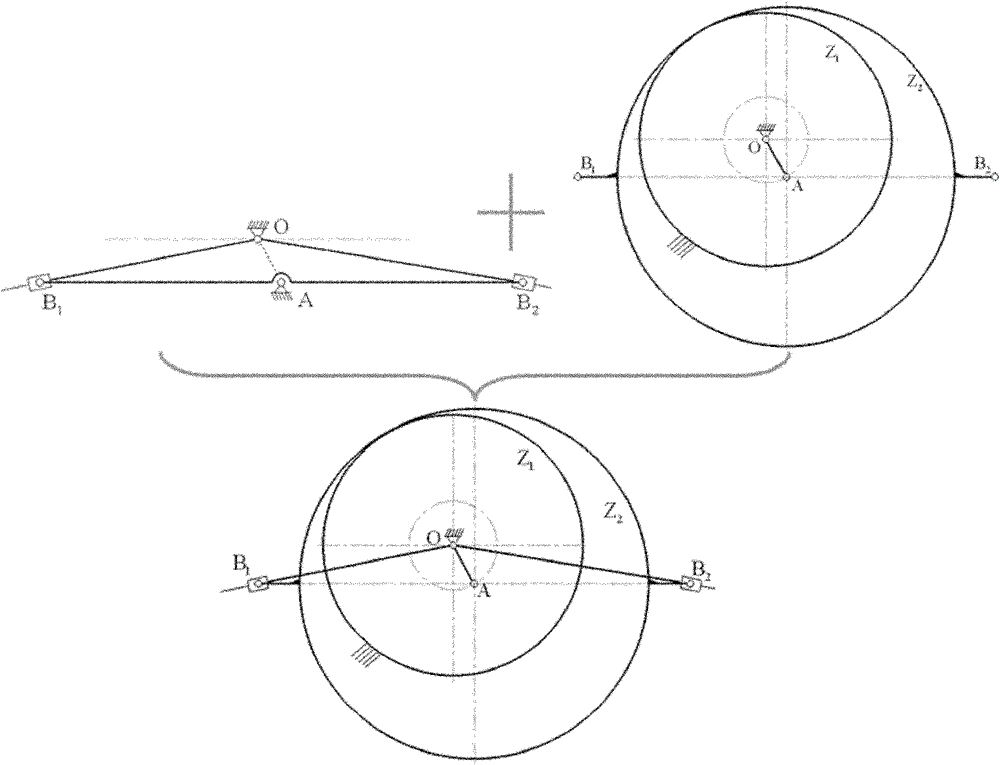Power transmission device formed by combining pericycloid mechanism and guide rod mechanism
A power transmission, cycloid technology, applied in the direction of machines/engines, mechanical equipment, combustion engines, etc., can solve the problems of high operating noise, impact, difficult processing, etc., to achieve low inertial force impact and vibration, wide application prospects , good effect of dynamic balance characteristics
- Summary
- Abstract
- Description
- Claims
- Application Information
AI Technical Summary
Problems solved by technology
Method used
Image
Examples
Embodiment Construction
[0021] The present invention will be described in further detail below in conjunction with the accompanying drawings and specific embodiments.
[0022] Such as figure 1 , figure 2 with image 3 As shown, the power transmission device combining the cycloid mechanism and the guide rod mechanism of the present invention includes a power cylinder assembly 1 and a differential drive assembly 2 connected to the power cylinder assembly 1. The power cylinder assembly 1 includes a rotor I11, a rotor II12, a power The shaft 10 and the cylinder body 13 , the rotor I11 and the rotor II12 are coaxially installed in the cylinder body 13 in a staggered shape (cross shape), and rotate around the rotation axis of the power shaft 10 . That is, the power cylinder assembly 1 and the differential drive assembly 2 are coaxially arranged and combined and installed through respective cylinder blocks. There are two rotors coaxially installed in the cylinder body 13 in the power cylinder assembly 1...
PUM
 Login to View More
Login to View More Abstract
Description
Claims
Application Information
 Login to View More
Login to View More - R&D
- Intellectual Property
- Life Sciences
- Materials
- Tech Scout
- Unparalleled Data Quality
- Higher Quality Content
- 60% Fewer Hallucinations
Browse by: Latest US Patents, China's latest patents, Technical Efficacy Thesaurus, Application Domain, Technology Topic, Popular Technical Reports.
© 2025 PatSnap. All rights reserved.Legal|Privacy policy|Modern Slavery Act Transparency Statement|Sitemap|About US| Contact US: help@patsnap.com



